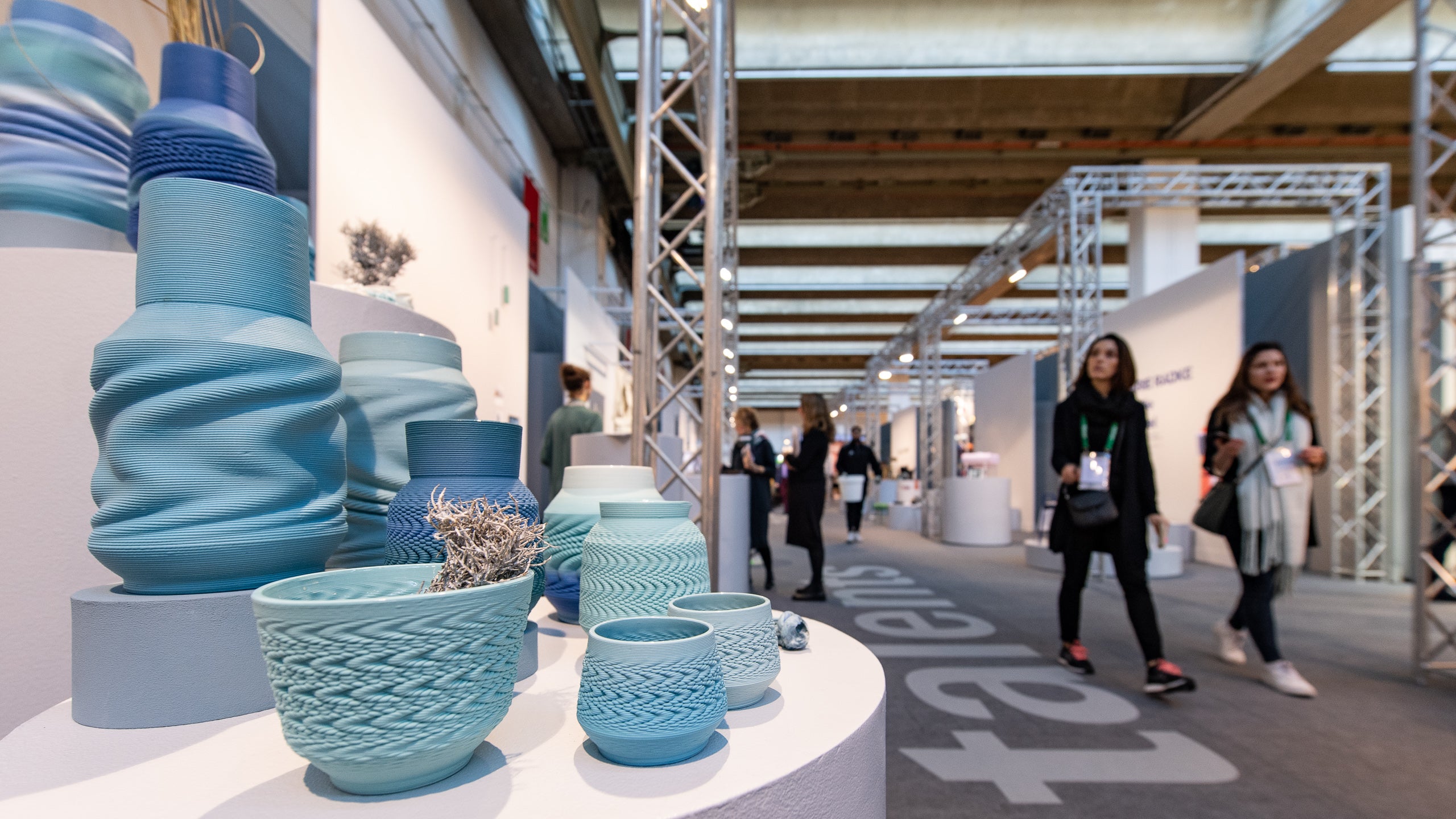Even as reports of forthcoming vaccines offer hope that 2021 will start to look even a little more like 2019, organizers of international trade shows, markets and fairs are struggling to come up with workable formats. In Europe, some shows are going entirely virtual, others are attempting live events, and still others are developing hybrid models. It’s unclear which (if any) of these solutions will prove to be viable in a future with so many unknowns.
The latest variation comes from Messe Frankfurt, the giant German trade show operator, considered the third-largest in the world, and one that is especially important to the home furnishings business, with fairs in the U.S., Europe and Asia. Its two big first-quarter shows in the home space, Heimtextil and Ambiente, are both being moved into the spring and will be combined with other events. The strategy seems designed to create some scale that smaller individual fairs will not be able to achieve in a world still ravaged by pandemic travel restrictions and concerns.
At a virtual press conference earlier this week, Messe Frankfurt officials presented details on the first of these events, the International Consumer Goods Show, scheduled for April 17 to 20. This fair will feature virtual and in-person components, and combines the tabletop, gift and housewares fair Ambiente with three other smaller, category-specific markets: Christmasworld, Paperworld and Creativeworld. The show’s slogan—“Nothing is forever and this is for now”—was part of emphatic messaging from organizers that this will be a one-time-only event.
“It will be a different show,” said Nicolette Naumann, vice president of Ambiente, in describing how the decision to combine the four fairs was made this fall as they realized that the first quarter of 2021 was not going to be business as usual. This year, she said, “could not be worse for us, but we’re optimistic that 2021 will be a good time to reopen.”
The physical portion of the show will be significantly smaller than when the fairs ran separately, occupying only the halls on the western end of the massive Messe Frankfurt complex in Frankfurt. (It boasts 4 million square feet of exhibition space inside, plus another 600,000 square feet outdoors.) About 63 countries are expected to send exhibitors, down from the usual 90-plus the fairs usually attract. No attendance projections were given.
On the virtual side, there will be three elements: livestreaming of physical displays, AI-driven matchmaking services, and Messe’s Nextrade ordering platform, which launched last year. Show officials—who noted that the four fairs were held together many years ago, but had been split up as they grew—said they fully expected to return to separate fairs in 2022. Right now, they say, “it’s the best of both worlds.”
The other major Messe Frankfurt home fair, Heimtextil, is being combined with other shows, and has been pushed back from its usual January slot to May 4 to 7. It is being “co-located” with Techtextil and Texprocess, two more industrial- and manufacturing-oriented textiles shows. No details have been released on numbers of exhibitors expected, nor on whether there will be a virtual side to the fair. (Interestingly, though, the website’s homepage says: “Feel textiles offline.”)
Other big European trade fairs for the home business are also adjusting their plans. Maison&Objet, the cross-category event held just outside of Paris, has pushed from January to March after canceling its fall show in September. The Cologne Furniture Fair, normally held in late January, has been completely canceled after organizers originally explored a hybrid format; they have not announced any replacement dates for 2021, and point to 2022 as the next show. And Salone del Mobile in Milan, considered perhaps the most avant-garde show for the furniture and furnishings industry, has moved its 2021 show from its usual April dates to September after canceling its 2020 event.
On this side of the Atlantic, show organizers are coming up with similar potential solutions, offering hybrid events, some truncated in-person shows and, in other cases, rescheduling to later in 2021 when things are expected to get better … probably.
Homepage photo: A scene from the most recent edition of Ambiente | Courtesy of Messe Frankfurt
____________
Warren Shoulberg is the former editor in chief for several leading B2B publications. He has been a guest lecturer at the Columbia University Graduate School of Business; received honors from the International Furnishings and Design Association and the Fashion Institute of Technology; and been cited by The Wall Street Journal, The New York Times, The Washington Post, CNN and other media as a leading industry expert. His Retail Watch columns offer deep industry insights on major markets and product categories.





























